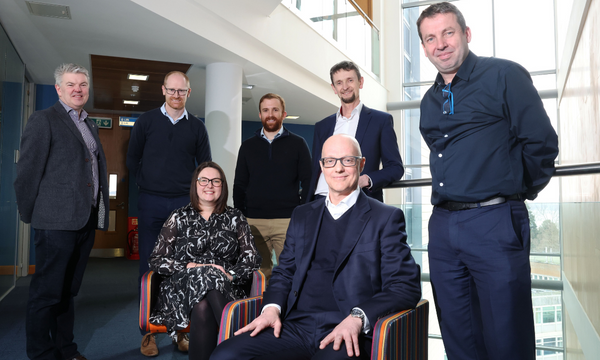CanSense – a Swansea company which has developed a blood test that aims to save lives by diagnosing bowel cancer at an early stage – has raised £1.5m from Mercia, the Development Bank of Wales and liquid biopsy company Nonacus.
CanSense’s test, which combines laser spectroscopy with artificial intelligence, is faster, less expensive and less invasive than a colonoscopy procedure and more acceptable for patients than a faecal blood detection kit. It could help detect bowel cancer at an early stage when it is much easier to treat and the chance of survival is much higher.
Studies have shown that it can detect pre-malignant polyps, before they develop into cancer. It can also rule out cancer with a high degree of accuracy and could therefore help GPs decide which patients to refer for further investigations. Currently less than one in ten patients who have a colonoscopy are found to have cancer and unnecessary procedures are estimated to cost the NHS around £300m a year.
The funding, which follows a £1.2m grant from the National Institute of Health Research in 2022, will enable the company to further develop the product and carry out clinical trials in order to meet regulatory requirements and bring it to market.

(standing, L-R) Andy Morris (DBW), Chris Sale, Rafael Joseph, Dean Harris and Peter Dunstan; (seated, l-r) Cerys Jones and Adam Bryant
CanSense’s blood test is based on research by Professor Peter Dunstan, Professor Dean Harris and Dr Cerys Jenkins at Swansea University which was part funded by Cancer Research Wales. They joined forces with Dr Adam Bryant, an entrepreneur and former investment banker with a PhD in physics, to set up CanSense in 2019.
Adam Bryant, the company’s CEO, said:
“Symptoms of bowel cancer are non-specific so it is hard for GPs to detect. Many patients are sent for a colonoscopy but the majority of these tests are negative, creating an inefficient pathway which is now at breaking point. Our test could help GPs to make the right triage decisions, freeing up diagnostic services and ensuring high-priority patients are seen as quickly as possible. By detecting bowel cancer at the earliest possible stage, it could also significantly improve outcomes for patients.”
Bowel cancer is the second most common cause of cancer deaths in the UK, accounting for over 16,800 deaths each year. Early detection is paramount – patients diagnosed with stage 1 colon cancer have a 95% chance of surviving for five years or more, compared to just 5% for those diagnosed at stage 4. Currently only 15% of cases are detected early but the NHS long-term plan aims to increase this to 75% by 2028.
Rafael Joseph, Investment Manager with Mercia, added:
“CanSense is one of a new generation of cancer diagnostic tools which have the potential to save many lives and lower the burden on the NHS. Mercia has a specialist knowledge of this field and has backed a number of innovators. CanSense is another piece in the puzzle and its ability to detect cancer at the earliest stage is particularly exciting.”
Andy Morris, Investment Executive in the Technology Venture Investments team at the Development Bank of Wales, said:
“We’re pleased to have backed CanSense during this investment round with equity support. Their testing technology shows huge potential, with benefits for NHS backlogs if adopted widely, and we’re glad to support the work of this company as it brings its expertise to Wales’ increasingly strong med-tech sector.”
Chris Sale, CEO at Nonacus, commented:
“CanSense’ unique and patented spectroscopy technology has shown real promise in early-stage clinical trial results as an early cancer detection screening or triage test. What’s more the technology can enable low cost and high throughput testing that would be needed in the screening and triage setting. In the future the CanSense technology could be applied as a standalone test or combined as a mutli-omics test with our own highly sensitive DNA based testing as required.”







